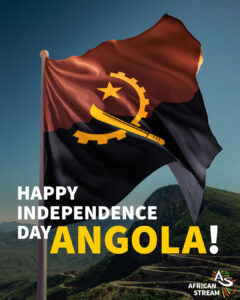
Angola gained independence on this day in 1975 after centuries of Portuguese colonialism. The Portuguese presence in the Southern African nation of goes as far back as 1448, explorers arrived on the country’s coast. They established settlements and moved inland to exploit natural resources and enslave Africans, shipping them off to Brazil and other colonies.
In the mid-20th century, the anti-colonial movement gained traction and became formalised with the emergence of organisations such as the leftist Popular Movement for the Liberation of Angola. Continued suppression led the MPLA and other groups to launch an armed struggle against the Portuguese in 1961. This lasted until 1974, when Portugal’s military dictatorship was overthrown by young military officers who were more open to freeing the country’s African colonies.
In January 1975, MPLA and other liberation groups met with the new Portuguese government and signed the Alvor Agreement, paving way for the country’s independence. Ideological differences between the three independence movements led to decades of civil war.
The country is still healing from this conflict but is trying to build itself up on the back of significant oil resources. Alas, in recent years, the ruling MPLA, which has governed the country since independence, has been accused of abandoning its revolutionary roots and transforming into a kleptocratic organisation serving the interests of Western governments and oil companies.
Sources:
https://nasseryouthmovement.net/AngolaDay-3306
https://thediplomaticinsight.com/angola-celebrates-independence-day-2/
